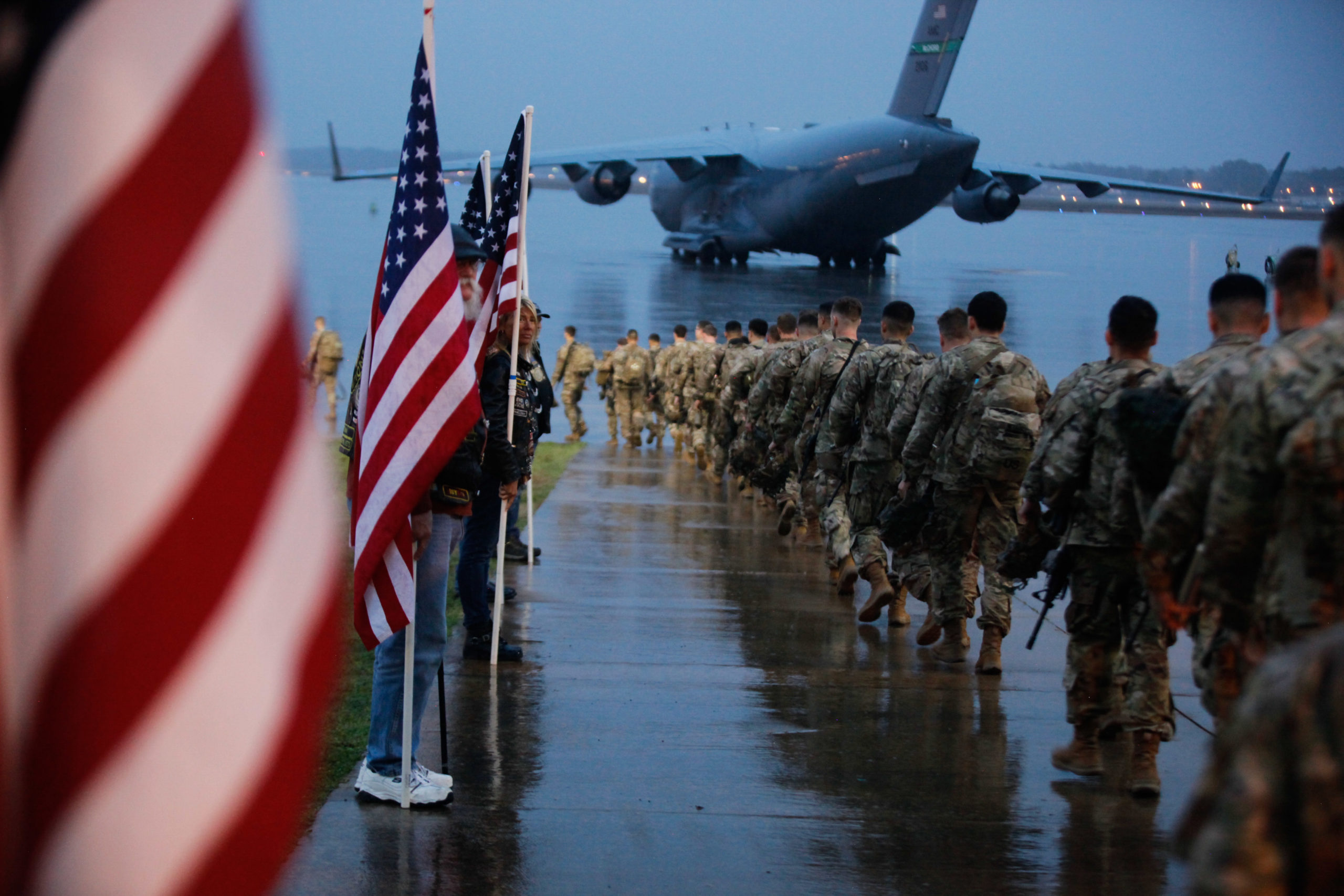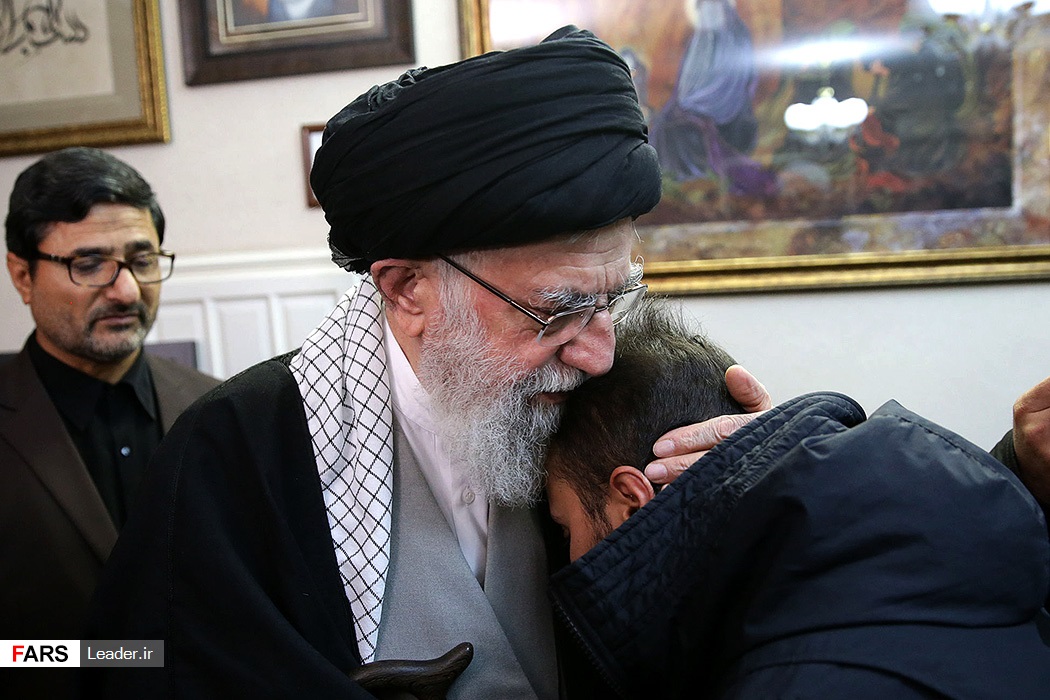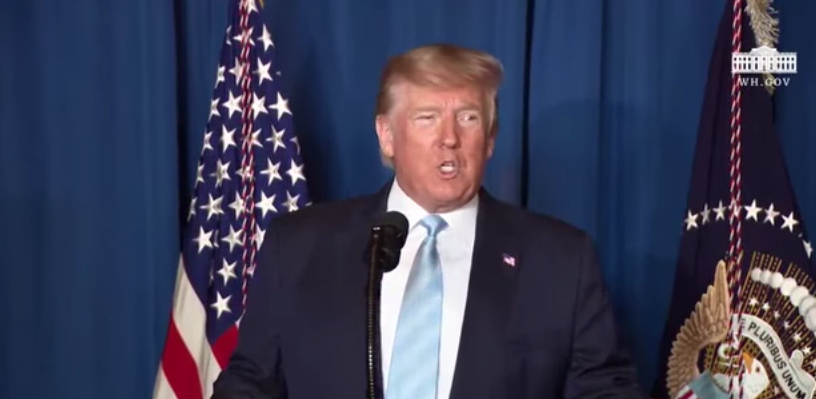As’ad AbuKhalil analyzes the Trump administration’s decision to escalate hostilities with Iran and its regional allies.

U.S. paratroopers deploy to the Middle East following the Baghdad airstrike, Jan. 4, 2020.(U.S. Army/Hubert Delany, Wikimedia Commons)
By As`ad AbuKhalil
Special to Consortium News
 Something big and unprecedented has happened in the Middle East after the assassination of one of Iran’s top commanders, Qasim Suleimani.
Something big and unprecedented has happened in the Middle East after the assassination of one of Iran’s top commanders, Qasim Suleimani.
The U.S. has long assumed that assassinations of major figures in the Iranian “resistance-axis” in the Middle East would bring risk to the U.S. military-intelligence presence in the Middle East. Western and Arab media reported that the U.S. had prevented Israel in the past from killing Suleimani. But with the top commander’s death, the Trump administration seems to think a key barrier to U.S. military operations in the Middle East has been removed.
The U.S. and Israel had noticed that Hizbullah and Iran did not retaliate against previous assassinations by Israel (or the U.S.) that took place in Syria (of Imad Mughniyyah, Jihad Mughniyyah, Samir Quntar); or for other attacks on Palestinian and Lebanese commanders in Syria.
The U.S. thus assumed that this assassination would not bring repercussions or harm to U.S. interests. Iranian reluctance to retaliate has only increased the willingness of Israel and the U.S. to violate the unspoken rules of engagement with Iran in the Arab East.
For many years Israel did perpetrate various assassinations against Iranian scientists and officers in Syria during the on-going war. But Israel and the U.S. avoided targeting leaders or commanders of Iran. During the U.S. occupation of Iraq, the U.S. and Iran collided directly and indirectly, but avoided engaging in assassinations for fear that this would unleash a series of tit-for-tat.
But the Trump administration has become known for not playing by the book, and for operating often according to the whims and impulses of President Donald Trump.

Iran’s AyatollahAli Khamenei consoles one of General Soleimani’s sons. (Fars News Agency, CC BY 4.0, Wikimedia Commons)
Different Level of Escalation
The decision to strike at Baghdad airport, however, was a different level of escalation. In addition to killing Suleimani it also killed Abu Mahdi al-Muhandis, a key leader of Hashd forces in Iraq. Like Suleimani, al-Muhandis was known for waging the long fight against ISIS. (Despite this, the U.S. media only give credit to the U.S. and its clients who barely lifted a finger in the fight against ISIS.)
On the surface of it, the strike was uncharacteristic of Trump. Here is a man who pledged to pull the U.S. out of the Middle East turmoil — turmoil for which the U.S and Israel bear the primary responsibility. And yet he seems willing to order a strike that will guarantee intensification of the conflict in the region, and even the deployment of more U.S. forces.
The first term of the Trump administration has revealed the extent to which the U.S. war empire is run by the military-intelligence apparatus. There is not much a president — even a popular president like Barack Obama in his second term — can do to change the course of empire. It is not that Obama wanted to end U.S. wars in the region, but Trump has tried to retreat from Middle East conflicts and yet he has been unable due to pressures not only from the military-intelligence apparatus but also from their war advocates in the U.S. Congress and Western media, D.C. think tanks and the human-rights industry. The pressures to preserve the war agenda is too powerful on a U.S. president for it to cease in the foreseeable future. But Trump has managed to start fewer new wars than his predecessors — until this strike.
Trump’s Obama Obsession
Trump in his foreign policy is obsessed with the legacy and image of Obama. He decided to violate the Iran nuclear agreement (which carried the weight of international law after its adoption by the UN Security Council) largely because he wanted to prove that he is tougher than Obama, and also because he wanted an international agreement that carries his imprint. Just as Trump relishes putting his name on buildings, hotels, and casinos he wants to put his name on international agreements. His decision, to strike at a convoy carrying perhaps the second most important person in Iran was presumably attached to an intelligence assessment that calculated that Iran is too weakened and too fatigued to strike back directly at the U.S.
Iran faced difficult choices in response to the assassination of Suleimani. On the one hand, Iran would appear weak and vulnerable if it did not retaliate and that would only invite more direct U.S. and Israeli attacks on Iranian targets.

U.S. president Donald Trump delivers prepared remarks on the airstrikes, Mar-a-Lago, Jan. 3, 2020. (Wikimedia Commons)
On the other hand, the decision to respond in a large-scale attack on U.S. military or diplomatic targets in the Middle East would invite an immediate massive U.S. strike inside Iran. Such an attack has been on the books; the U.S military (and Israel, of course) have been waiting for the right moment for the U.S. to destroy key strategic sites inside Iran.
Furthermore, there is no question that the cruel U.S.-imposed sanctions on Iran have made life difficult for the Iranian people and have limited the choices of the government, and weakened its political legitimacy, especially in the face of vast Gulf-Western attempts to exploit internal dissent and divisions inside Iran. (Not that dissent inside Iran is not real, and not that repression by the regime is not real).
Nonetheless, if the Iranian regime were to open an all-out war against the U.S., this would certainly cause great harm and damage to U.S. and Israeli interests.
Iran Sending Messages
In the last year, however, Iran successfully sent messages to Gulf regimes (through attacks on oil shipping in the Gulf, for which Iran did not claim responsibility, nor did it take responsibility for the pin-point attack on ARAMCO oil installations) that any future conflict would not spare their territories.
That quickly reversed the policy orientations of both Saudi Arabia and the UAE, which suddenly became weary of confrontation with Iran, and both are now negotiating (openly and secretively) with the Iranian government. Ironically, both the UAE and Saudi regimes — which constituted a lobby for war against Iran in Western capitals — are also eager to distance themselves from U.S. military action against Iran. And Kuwait quickly denied that the U.S. used its territory in the U.S. attack on Baghdad airport, while Qatar dispatched its foreign minister to Iran (officially to offer condolences over the death of Suleimani, but presumably also to distance itself and its territory from the U.S. attack).
The Iranian response was very measured and very specific. It was purposefully intended to avoid causing U.S. casualties; it was intended more as a message of Iranian missile capabilities and their pin point accuracy. And that message was not lost on Israel.
Hasan Nasrallah, the leader of Hizbullah, sent a more strident message. He basically implied that it would be left to Iran’s allies to engineer military responses. He also declared a war on the U.S. military presence in the Middle East, although he was at pains to stress that U.S. civilians are to be spared in any attack or retaliation.
Supporters of the Iran resistance axis have been quite angry in the wake of the assassination. The status of Suleimani in his camp is similar to the status of Nasrallah although Nasrallah — due to his charisma and to his performance and the performance of his party in the July 2006 war — may have attained a higher status.
It would be easy for the Trump administration to ignite a Middle East war by provoking Iran once again, and wrongly assuming that there are no limits to Iranian caution and self-restraint. But if the U.S. (and Israel with it or behind it) were to start a Middle East war, it will spread far wider and last far longer than the last war in Iraq, which the U.S. is yet to complete.
As’ad AbuKhalil is a Lebanese-American professor of political science at California State University, Stanislaus. He is the author of the “Historical Dictionary of Lebanon” (1998), “Bin Laden, Islam and America’s New War on Terrorism (2002), and “The Battle for Saudi Arabia” (2004). He tweets as @asadabukhal
The views expressed are solely those of the author and may or may not reflect those of Consortium News.
Please Donate to the Winter Fund Drive.
Before commenting please read Robert Parry’s Comment Policy. Allegations unsupported by facts, gross or misleading factual errors and ad hominem attacks, and abusive or rude language toward other commenters or our writers will not be published. If your comment does not immediately appear, please be patient as it is manually reviewed. For security reasons, please refrain from inserting links in your comments, which should not be longer than 300 words.

The only real question is, “Who will Iran kill for this?” When is not as important. How is not really important at all. It is coming. The reaction will be a choice, a decision for war in retaliation for retaliation.
‘Trump in his foreign policy is obsessed with the legacy and image of Obama. He decided to violate the Iran nuclear agreement (which carried the weight of international law after its adoption by the UN Security Council) largely because he wanted to prove that he is tougher than Obama, and also because he wanted an international agreement that carries his imprint.’
I think this is of minor importance. Much more important is the power of the Jewish Lobby in America and on Trump in particular.
A sad but important article. How Trump can use wicked and dangerous advisers like Pompass and Pence, and encourage Esper to behave in the opposite way that any sane “defense minister” would, shows how desperate the situation has become. There seem to be no human feelings or suggestions than anyone but a few white, US-citizen Christians (!!!) have any right to life, to peace, to their own governments and decisions. To see how Iraq is now being treated after war, sanctions, invasion, occupation,destruction and death from the USA and allies for nearly thirty years, now the Trump régime will not leave, steals the oil money that Iraq foolishly deposited in the NY Fed and destabilizes Iraq’s PM for daring to contract with China for rebuilding.
Thank you again, Professor AbuKhalil for this cogent – and depressing – summary of the current state of things in an already destabilized, devastated part of the world.
The FUKUSI governments and many of their peoples simply *cannot*, it seems, behave like normal, sensible, rational, moral, humane nations. Cannot accept that other peoples, other nations, ways of living and being have as much right as we to run their governments, countries, cultures, societies in the ways *they* choose. That they *should* be as free as we to decide their own political systems, alliances, ways of trade without having to do as we demand, without having consult our diktats. But then “our interests” (really those of the corporate-capitalist-imperialist elites, i.e. the banksters, the multi-billionaires, our real governors) would lose, could not be maintained. And that cannot be permitted.
And of course, we are in charge because we are the exceptional nation. We, being such “exceptional” people, happily starve peoples beyond our borders to death, bomb them to smithereens, occupy their lands and steal their natural resources, overthrow their legitimate governments (of course *we* decide which are legitimate and which not because, well, obviously we are superior, have *the* right to do so) or work through (usually middle class/bourgeois) discontented locals to do the same while pretending that such is the desire of the vast majority of the target country’s population.
We – the western (including Occupied Palestine, commonly referred to as Israel) nations, peoples – need to mind our own bloody business, stop murdering people whether by drone, bomb, missile, proxies, economic sanctions (siege warfare) and instead look after our own people, take care of the mighty flaws in our own countries.
Quite silly for people to still equate the current situation with the missile crisis of 1962. Two different situations and the first ( 1962) one more of an urgent US crisis than the one now. This is not saying the one now is not serious. This piece is the most measured that I have seen on this topic yet. The photo of the Ayatollah consoling Soleimani’s son is very sad and deeply felt.
World as we know it ending, is, world as we know it ending. Literal or figurative. The fragility of our modern world is such that any serious disruption to infrastructure will be calamitous. We tend to hide our heads in the sand when contemplating apocalyptic scenarios, which is understandable, psychologically. However, once the Genie is out of the bottle, a Pandora’s box of unfathomable circumstances can unfold. That is the nature of war. Total unpredictability. So yeah, any escalation in that region could easily become, as you say, an urgent US crisis. You just fear examining the myriad consequences.
Many many salient points in this piece.
First and foremost, ***Supporters of the Iran resistance axis have been quite angry in the wake of the assassination. The status of Suleimani in his camp is similar to the status of Nasrallah although Nasrallah — due to his charisma and to his performance and the performance of his party in the July 2006 war — may have attained a higher status. *** Nasrallah’s security would never have allowed an assassination. His security is ALWAYS on guard.
Second, *** But if the U.S. (and Israel with it or behind it) were to start a Middle East war, it will spread far wider and last far longer than the last war in Iraq, which the U.S. is yet to complete.*** That is why the world sits atop a powder keg with this reckless escalation.(Suleimani’s assassination) Again, I say this current situation is far more perilous then the Cuban Missile Crisis of the Kennedy administration. Irrespective of what some clown car troglodyte dictates to me. The far reaching implications of further escalation will make the Cuban Missile Crisis pale in comparison. The new weapons of destruction in this modern day era will be revealed for all to see and they will indeed be so frightening as to be unimaginable. Thank you As’ad for this nuanced and sobering assessment.
It appears that with this murder, and the endless, illegal wars instigated by the US government along with the total Trump bashing, 24-7 news coverage of our clown President and the three ring circus Democratic Party primaries, the life ending climate crises will continue to be ignored. Why the f*** do we continue to pay for these greedy, revolving door plutocrats posing as our government officials as they lead us down the path to world demise!